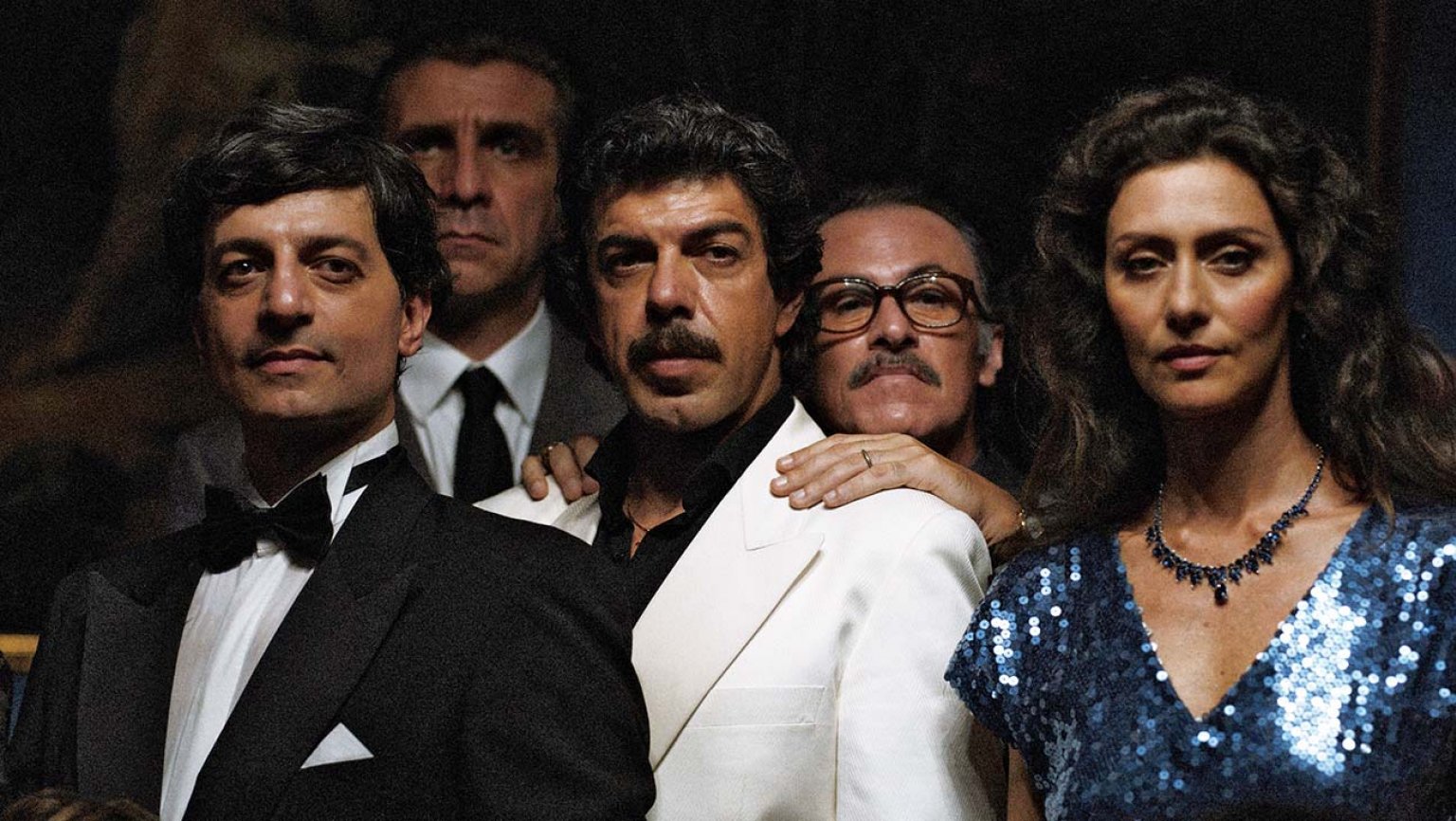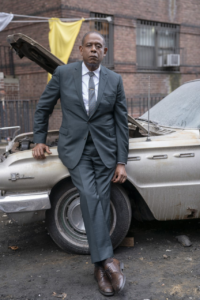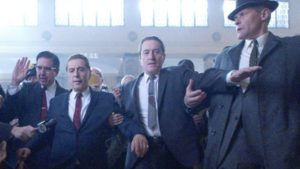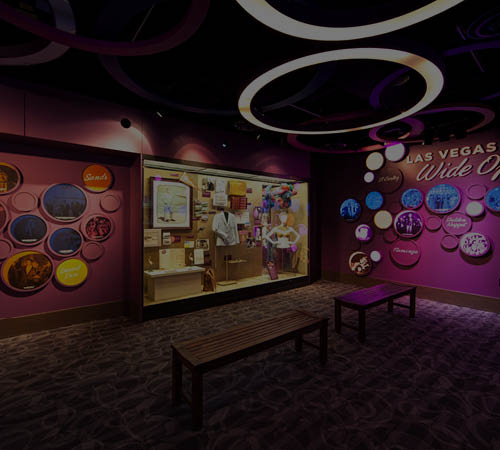
Mob TV shows, movies put New York on center stage
HBO’s The Deuce, New York Film Festival unveilings of The Irishman and The Traitor highlight fall season

When it comes to Mob movies and television shows, New York is in the spotlight again.
Two television series focused on organized crime in the area — The Deuce and Godfather of Harlem — made news going into the fall season, and a couple of major Mob movies, though set in places outside New York, are in the featured lineup at this year’s New York Film Festival from September 27 to October 13.
New York’s status as a hub for Mafia productions is not new, beginning with the early gangster films and continuing past The Godfather and Goodfellas years. Interest in New York’s ruling Five Families, whose influence has had an impact on organized crime well beyond the city’s borders, drives much of the public’s fascination with the Mafia. It’s a metropolitan setting that filmmakers and authors continue to play upon.
“New York City and the Mafia basically go hand-in-hand,” Michael Cipiti said in an email. A veteran actor, Cipiti portrays crime boss Carlo Gambino in the 2018 New York-centered movie Gotti, starring John Travolta.
Fans of this hand-in-hand relationship have a lot to look forward to in the final months of the year. The Deuce, by co-creators David Simon and George Pelecanos, kicked off its third and final season on HBO in early September, advancing the story of New York’s Mob-controlled sex industry from the early 1970s in season one to the mid-1980s at the onset of the AIDS epidemic.
This season, the series continues its focus on crime-ridden 42nd Street (“The Deuce”) near Times Square in New York City, but also looks at pornography’s changing technological landscape and cruder on-screen escapades, with some of the show’s characters heading to Hollywood and even attending the Consumer Electronics Show in Las Vegas. A scene-setting shot in season three’s first episode shows the Las Vegas Strip and one of its most notorious Mob-connected casinos, the now-demolished Stardust.

The era’s key New York Mafia figures, including John Gotti and pornography king Robert DiBernardo, come into play in The Deuce during season three. In one scene, mobster Rudy Pipilo, portrayed by Michael Rispoli, voices his belief that Gotti might make a move to take over the Gambino crime family if boss Paul Castellano is eliminated. In real life, Gotti orchestrated a hit on Castellano, who was shot to death in December 1985 outside Sparks Steak House in Manhattan. DiBernardo, a Gambino captain, later was killed with Gotti’s approval. As New York journalist Anthony M. DeStefano notes in his 2019 true-crime book Gotti’s Boys, DiBernardo’s body was never found.
“They’re animals,” the Mob character in The Deuce says of Gotti and his crew.
Another show, Godfather of Harlem, premiering September 29 on the Epix channel, stars Forest Whitaker as “crime boss Bumpy Johnson, a figure in the early 1960s who returned from a 10-year jail stint to find his neighborhood overrun by the Italian Mob,” according to Deadline, a news website focusing on the entertainment industry.
From movies such as Hoodlum and American Gangster, Whitaker said he knew of Johnson but “didn’t realize his influence on the community.”
“I didn’t know about his family life, his connection to Malcolm X, and his (pursuit) going after our needs and our desires for a great life,” Whitaker said in a recent Deadline story.
New York actor Michael Maffucci said the focus on that city as a setting for Mob productions results in part from its prominent Mafia history.
“I really hate to sound like an arrogant New Yorker,” he said in an email, “but it really is New York, then everywhere else. Also, just on a Mafia level, New York has had so much more going on than any other city.”
Maffucci, who is slated to appear in a scene in The Irishman, also is co-host of a podcast on Uncle Frank’s Place, a website dedicated to one of New York’s earlier leading mobsters, Frank Costello.
While New York is garnering attention on the small screen, big-time movies about the Mafia are making news this fall, and while the action takes place elsewhere, New York, considered the nation’s most influential media city, is where these films are being unveiled.

In late September and early October, two major Mob movies, The Irishman and The Traitor, are being shown at the New York Film Festival. Director Martin Scorsese’s The Irishman, based on the book I Heard You Paint Houses by former prosecutor Charles Brandt, stars Robert De Niro as East Coast Mob hit man Frank “The Irishman” Sheeran, who claims to have killed labor leader Jimmy Hoffa in suburban Detroit in 1975 on orders from the Mafia. This movie is the opening selection on the first night of the festival.
The Traitor explores Mafia boss Tommaso Buscetta’a role as an informant whose inside information dealt a blow to the Sicilian Mafia in the 1980s. The New York Times has called Buscetta “the first important Italian Mob leader to break the Mafia oath of silence.” The Film at Lincoln Center website notes that The Traitor’s October 6 showing at the festival marks the U.S. premiere for this movie by Italian director Marco Bellocchio.
Whatever the primary setting — New York or elsewhere — Cipiti said Mob stories will continue to be popular. Much of that popularity is rooted in the emotional connection people experience when encountering these tales.
“We want to feel things when we watch a movie, TV show or read a book,” the actor said in the email. “I want to feel the emotions, good and bad. I want to imagine myself in that character’s situation and set of circumstances. I want to leave normalcy behind, and feel the excitement and danger in these characters’ lives.”
Mob movies, he added, are “exciting, dangerous and fun to watch.”
“Mobsters have been a part of American culture and entertainment for a long time,” Cipiti said. “I don’t think they’re going anywhere. I hope not, certainly not from an entertainment perspective.”
Larry Henry is a veteran print and broadcast journalist. He served as press secretary for Nevada Governor Bob Miller, and was political editor at the Las Vegas Sun and managing editor at KFSM-TV, the CBS affiliate in Northwest Arkansas. Henry taught journalism at Haas Hall Academy in Bentonville, Arkansas, and now is the headmaster at the school’s campus in Rogers, Arkansas. The Mob in Pop Culture blog appears monthly.
Feedback or questions? Email blog@themobmuseum.org





